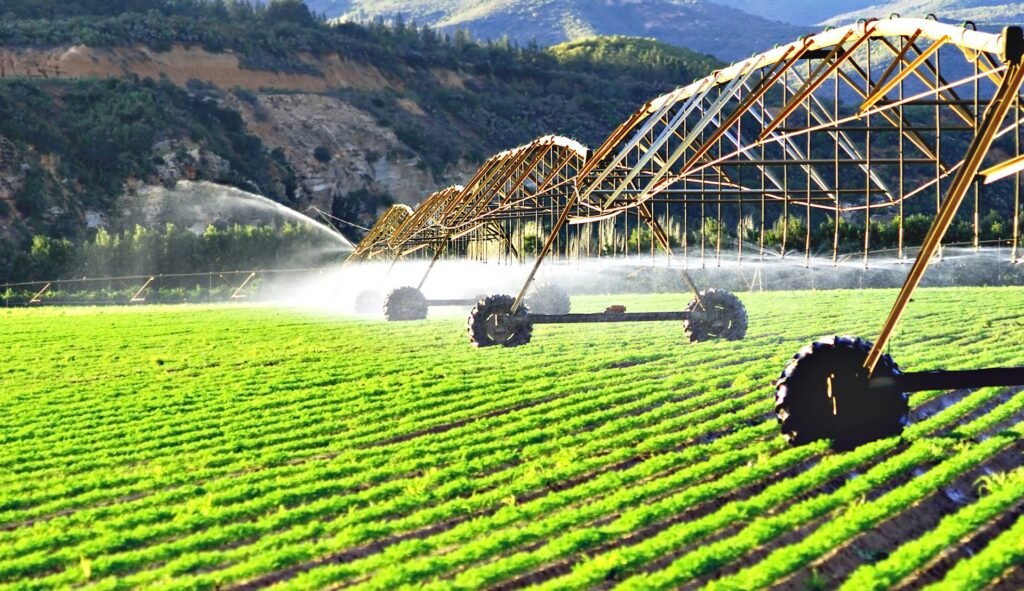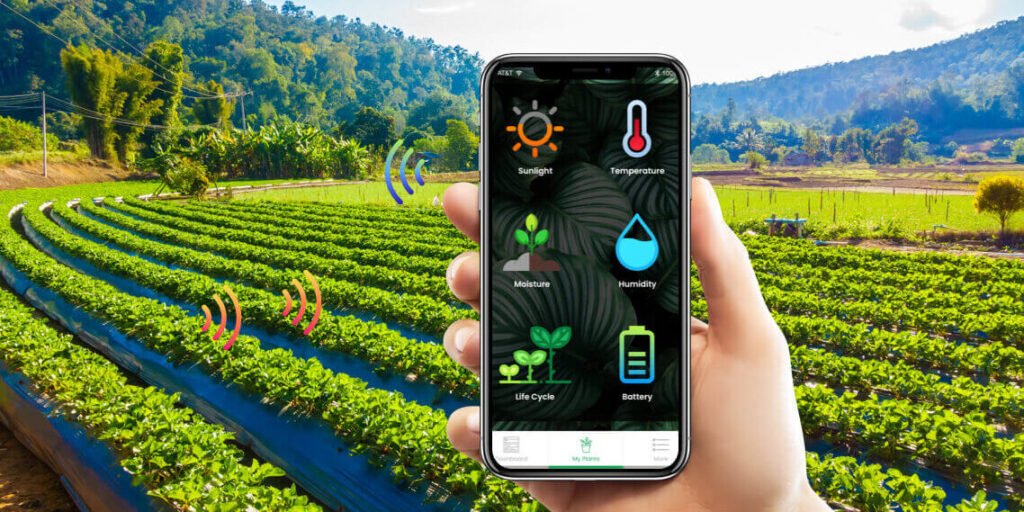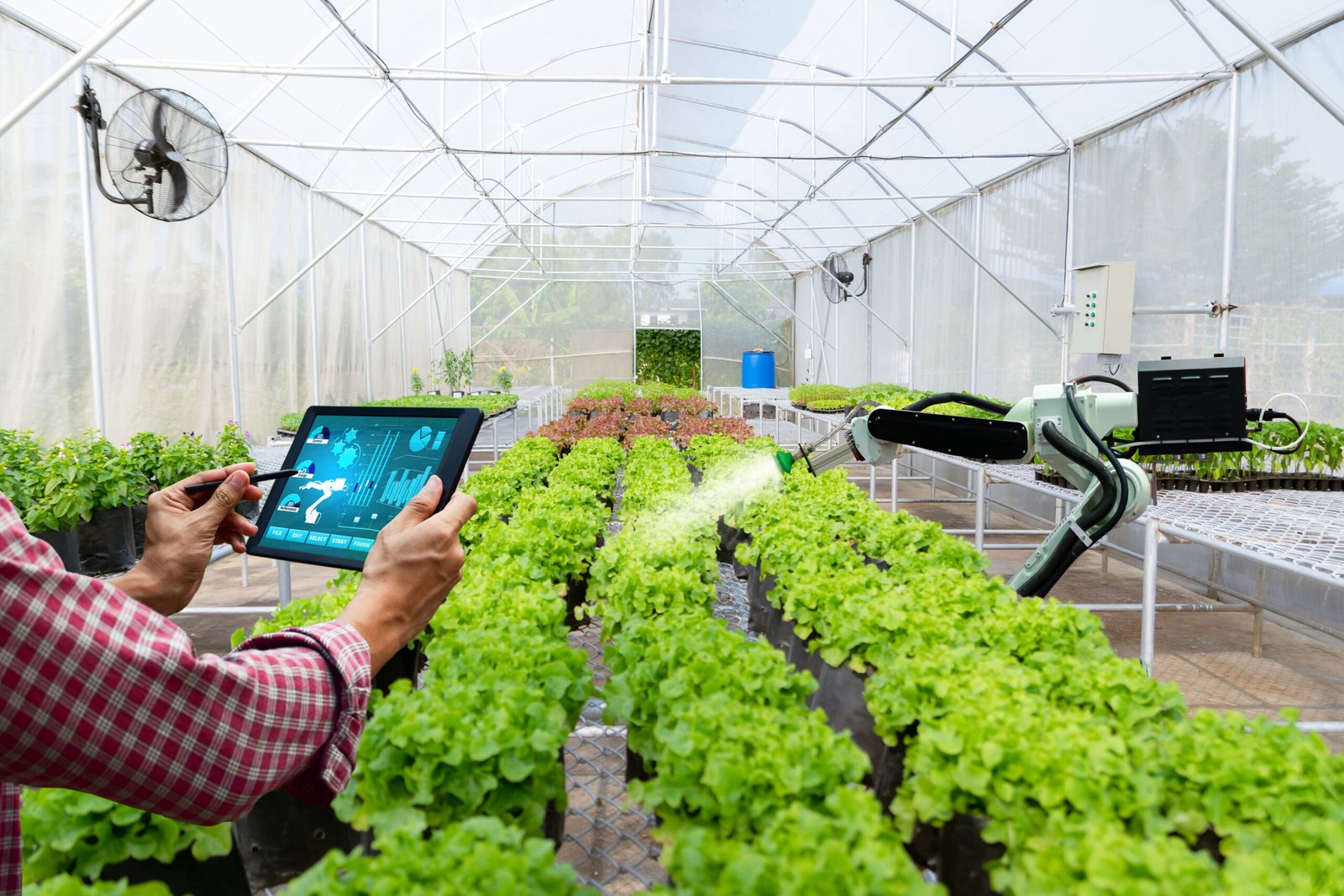The Future of Technical Agriculture Farming in The World
The Future of Technical Agriculture Farming: Embracing Innovation for Sustainable Growth
Introduction
The foundation of civilization has always been agriculture, which has fed, clothed, and powered countless generations. However, the agricultural sector’s problems, like climate change, population increase, and resource scarcity, necessitate a fundamental transition towards technical agriculture farming. The future of Technical agriculture Farming holds enormous potential for enhanced production, resource efficiency, and sustainability through embracing innovation and cutting-edge technologies.

Precision agriculture is essential for effective resource management.
A breakthrough method known as “precision farming” uses cutting-edge gadgets like GPS, sensors, drones, and artificial intelligence to optimize every facet of agricultural practices. Farmers can make educated decisions that result in the targeted application of fertilizers, pesticides, and water by analyzing real-time data on soil characteristics, weather patterns, and crop health. This improves yields, lessens the environmental impact, and lowers overall input costs.
Maximising Space and Resource Utilisation through Vertical Farming/Technical Agriculture Farming
Fresh and local goods are more in demand as urbanization picks up speed. These issues are addressed by vertical farming, which grows crops in stacked layers indoors in places with regulated environments like high-rise buildings. Optimal growth conditions are guaranteed by automated systems, hydroponics, and LED lighting, allowing for year-round production, less water use, and lower shipping costs. In addition to ensuring food security, vertical farming reduces agriculture’s environmental impact.

Robotics and Automation: A Game-Changer for Labor-Intensive Tasks/Technical Agriculture Farming
The use of robotics and automation in various agricultural operations will become more prevalent in future technology agriculture farming. Autonomous tractors, robotic harvesters, and drones for crop monitoring will revolutionize work requiring much manual labour. These technologies will use less human delivery while increasing efficiency and precision. Improved crop yields and greater use of human resources in more strategic roles are possible due to robots’ tireless labour and unmatched accuracy.
Biotechnology and Genetic Engineering: Tailoring Crops for Resilience/Technical Agriculture Farming
Enhancing agricultural resilience and adaptation to changing climates can be accomplished using biotechnology and genetic engineering. Scientists are creating genetically altered crops with higher nutritional value, disease resistance, and improved drought tolerance. These genetically modified crops could enhance food production while requiring less chemical inputs, resulting in a more environmentally friendly and sustainable agricultural landscape.

Internet of Things (IoT) and Big Data Analytics: Driving Data-Driven Agriculture/Technical Agriculture Farming
IoT devices in agriculture allow for the seamless collection of data from various sources, such as weather stations, soil sensors, and machinery. When combined with big data analytics, this plethora of data offers farmers valuable insights for making data-driven decisions. Optimizing planting schedules, early disease outbreak detection, and efficient resource management are all made possible by predictive modelling and analytics, which also increase productivity and risk management.
Sustainable Practices and Conservation Agriculture: Prioritizing Environmental Stewardship/Technical Agriculture Farming
To preserve the planet’s long-term viability, agriculture’s future must be intrinsically sustainable. Techniques used in conservation agriculture, such as crop rotation, no-till farming, and cover crops, improve soil health and lessen erosion while conserving water. Utilizing biological and natural controls instead of chemical pesticides, integrated pest management techniques protect ecosystem health and biodiversity by reducing the need for chemical pesticides.

Conclusion:
Technical agriculture farming may help future food production systems become more efficient, effective, and sustainable. Farmers will be better equipped to handle the difficulties of a changing world if they embrace cutting-edge technologies like precision farming, vertical farming, robots, biotechnology, IoT, and sustainable practices. We can meet the requirements of the present and future generations while preserving our priceless planet by creating a symbiotic link between technology and the environment. Technical Agriculture Farming will prosper. Cooperation between farmers, scientists, policymakers, and technology developers will create a stable and prosperous agricultural environment as we get closer to this future.


